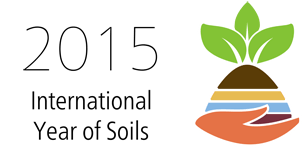 13 June 2015: Member States of the Food and Agriculture Organization of the UN (FAO) unanimously endorsed an updated version of the World Soil Charter (WSC) during the 39th Session of the FAO Conference, which met from 6-13 June in Rome, Italy. The new Charter replaces the original version that was negotiated and adopted by FAO members in 1981, and coincides with celebrations of the International Year of Soils (IYS) 2015.
13 June 2015: Member States of the Food and Agriculture Organization of the UN (FAO) unanimously endorsed an updated version of the World Soil Charter (WSC) during the 39th Session of the FAO Conference, which met from 6-13 June in Rome, Italy. The new Charter replaces the original version that was negotiated and adopted by FAO members in 1981, and coincides with celebrations of the International Year of Soils (IYS) 2015.
In view of major policy developments and conceptual advances over the past three decades, the Global Soil Partnership (GSP) of the FAO requested its advisory body, the Intergovernmental Technical Panel on Soils (ITPS), to assess “the continued validity of the Charter” and to develop, via a broad consultative process, a revised text reflecting the latest knowledge on, among other issues: soil pollution and its consequences for the environment; climate change adaptation and mitigation; urban sprawl impacts on soil availability and functions; and the concept of ecosystem services.
The ITPS was also charged with factoring in major international developments in the intervening period, including the UN Conference on Sustainable Development (UNCSD, or Rio+20) and the work of the FAO Committee on Food Security. It was further taksed with reorganizing and expanding the WSC guidelines for action to take account of a broader range of stakeholders.
Subsequent revisions of the WSC text were approved and endorsed by various governing bodies, including the GSP Plenary Assembly at its second meeting in July 2014, the 24th session of the Committee on Agriculture (COAG) in October 2014, and the FAO Council in December 2014, prior to its submission to the FAO biennial conference.
The revised WSC is organized in three sections: a Preamble; nine Principles; and Guidelines for Action to ensure that “soils are managed sustainably and that degraded soils are rehabilitated or restored.” The actions are targeted at individuals and the private sector, groups and the science community, governments and international organizations.
Outlining the way forward, the GSP Secretariat commits itself to ensure “the broadest resonance and implementation of the revised Charter at all levels, from policy-makers down to soil practitioners in countries and regions, including through channels for communication with potential key actors provided by the GSP, in the context of the IYS and World Soil Day.” [GSP Press Release] [FAO Resolution and Revised World Soil Charter] [Natural Resources & Practice Story on FAO Biennial Conference]